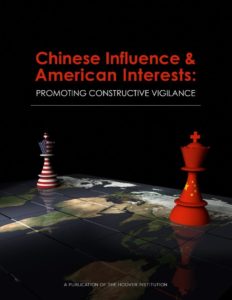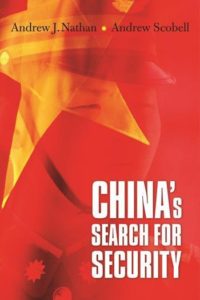When I started as AFP’s bureau chief in Hong Kong in 2014, huge pro-democracy rallies known as the Umbrella Movement were erupting onto the streets, earning their name from the rag-tag assortment of umbrellas used by protesters to protect against police tear gas and pepper spray, notes Laura Mannering. The students leading the rallies had taken inspiration from Taiwan’s Sunflower Movement earlier that year, where young protesters occupied parliament over government trade deals with China, she writes:
I’ve also reported on Taiwan since 2014 and have seen some of those protest figures go on to become lawmakers as the island strives to define itself as a beacon of freedom in Asia. Taiwan has a full-blown democracy and behaves to all intents and purposes as a sovereign country, but China claims it is part of mainland territory and has successfully marginalised it on the world stage.
 In both places, China’s Communist Party is exercising what a National Endowment for Democracy report calls its sharp power in line with the popular idiom translated as “Kill the Chicken to Scare the Monkey,” she adds.
In both places, China’s Communist Party is exercising what a National Endowment for Democracy report calls its sharp power in line with the popular idiom translated as “Kill the Chicken to Scare the Monkey,” she adds.
China is often described as ruthless and dystopian, with escalating censorship, intensified propaganda and the social credit system presenting a threatening new mode of Internet governance to the West, one where the freewheeling World Wide Web seems “captured” by the Chinese Communist Party, notes Maria Repnikova, an assistant professor in global communications at Georgia State University and the director of the Center for Global Information Studies. Such increases in control, however, do not tell the whole story, she writes for The Washington Post:
 Since the inception and spread of the Internet in China, the Chinese party-state has attempted to use the Internet for governance and legitimacy-building as well as for weeding out sensitive information. Chinese President Xi Jinping has referred to the Internet as a “battlefield” where the party struggles to sway public opinion. And that effort means that alongside control, Chinese authorities scrupulously listen to and study public opinion online, engage with and respond to public grievances, and creatively mobilize the public through interactive social media tools.
Since the inception and spread of the Internet in China, the Chinese party-state has attempted to use the Internet for governance and legitimacy-building as well as for weeding out sensitive information. Chinese President Xi Jinping has referred to the Internet as a “battlefield” where the party struggles to sway public opinion. And that effort means that alongside control, Chinese authorities scrupulously listen to and study public opinion online, engage with and respond to public grievances, and creatively mobilize the public through interactive social media tools.
“But the biggest tension in China’s digital governance is between the quest for intensified control and the desire for public engagement,” adds Repnikova, author of Media Politics in China: Improvising Power Under Authoritarianism. “If the former starts to overpower the latter, then this balancing act will become harder to maintain. China’s political system has thus far been remarkably distinct from other authoritarian counterparts in its ‘consultative’ and ‘responsive’ nature. It remains to be seen if these adjectives will apply to it in the future.”
 At a recent discussion (above) of how ideology and values could impact competition between the United States and China, analyst Ted Piccone underscored the need to both maintain bilateral space for cooperation, while also recognizing the emergence of a more globally assertive China, “especially economically, but also militarily” and even “on soft power terms,” notes Brookings analyst Will Moreland, a Penn Kemble fellow at the National Endowment for Democracy.
At a recent discussion (above) of how ideology and values could impact competition between the United States and China, analyst Ted Piccone underscored the need to both maintain bilateral space for cooperation, while also recognizing the emergence of a more globally assertive China, “especially economically, but also militarily” and even “on soft power terms,” notes Brookings analyst Will Moreland, a Penn Kemble fellow at the National Endowment for Democracy.
In studies of China’s growing influence in Latin America, Piccone, along with Brookings colleagues David Dollar and Harold Trinkunas, has found that Beijing “has become more of an enabler, and a facilitator, of bad behavior that was already going on,” …. [arguing that] the United States should focus on countering authoritarianism by “strengthening democracies around the world, and getting them to work properly…and deliver benefits to their people.”
The EU has finalized a scheme that aims to protect European interests against predatory Chinese investments, notes Philippe Le Corre, a senior fellow at the Harvard Kennedy School & Carnegie Endowment for International Peace and author of a recent Carnegie report, China’s rise as a geo-economic influencer.
“If the current US-China economic rivalry is sustained, China may increasingly need Europe,” he writes for The Financial Times. “Instead of indulging in non-discriminatory investment programs, it is high time the continent prepares itself adequately to protect the sovereignty and the industrial independence of its member states.”
 Andrew Nathan, professor of political science at Columbia, said China has also boosted its influence overseas by providing free news, RFA adds.
Andrew Nathan, professor of political science at Columbia, said China has also boosted its influence overseas by providing free news, RFA adds.
“They also have a lot of influence in the Chinese media in Africa,” said Nathan, co-author of China’s Search for Security. “Take, for example, Xinhua News Agency. More than 90 percent of its news is fairly objective, and contains valuable information, but about 10 percent of it is information that has a pro-China bias.”
“Xinhua is huge in Africa, because African news organizations don’t have much money, so Xinhua supplies a lot of stories to them free of charge,” he said. “So, of course, they are going to use Xinhua copy.”







